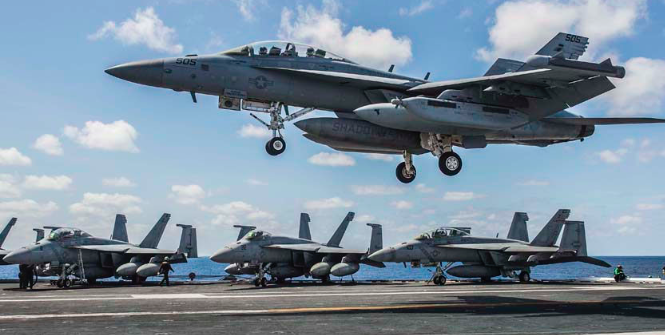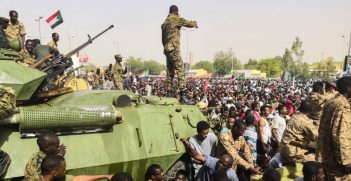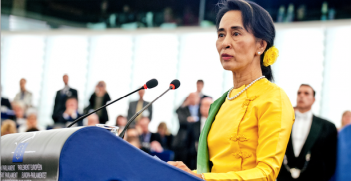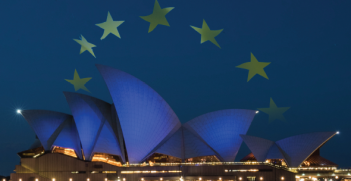Australia Will Spend $1 Billion This Year On A Losing War in Iraq

Unflinching Australian support for the American-led war effort in Iraq has come at a high price.
Australia’s staunch support for the United States-led war effort in Iraq needs little introduction. We are the second-largest foreign contributor, with 500 troops on the ground and another 400 RAAF personnel stationed in Dubai, armed with six Hornet fighters, a tanker aircraft and an airborne control plane. This contribution will cost the Australian government $1 billion this year.
But the Australian government has successfully escaped serious scrutiny over recent developments in the Middle East. Of these developments, the most critical are the paradoxical policies of the Saudi, Turkish, and Iranian governments which are undermining Australia’s war effort.
Earlier this month, The Wall Street Journal revealed that al-Qaeda is fighting on the same side as Saudi-backed militias in Yemen. This has grave consequences for the broader Middle East war effort led by the United States and supported by the Australian government.
Yemen has been the linchpin of the US strategy to counter global terrorist organisations. But earlier this year, Houthi rebels overthrew the Yemen government, and Washington lost both an ally and its broader Middle East al-Qaeda strategy. In response, the US backed a Saudi-led air campaign to overthrow the Houthis and reinstate the government, now in exile in Saudi Arabia.
However, the Journal’s report showed that the Saudi government depended on al-Qaeda insurgencies to overthrow the Houthi rebels. This puts the US and their Sunni Gulf allies on the same side as the world’s most infamous terrorist organisation. This demonstrates the vexed position of US strategy in the Middle East, but it is nonetheless surprising that this development came without comment from Australia’s major political parties.
A similar situation has occurred in Turkey, where a quagmire remains over the use of Syrian Kurdish forces. The Kurdish People’s Protection Units (YPG) is the most reliable and effective force in the battle against IS in Syria. Last month it took the strategic town of Tal Abyad from IS. This cut off a major supply route of the terrorist organisation and brought the YPG within 100 kilometres of Raqqa, the self-declared capital of the terrorist organisation.
But the US government has been unwilling to arm the Kurdish forces for fear of upsetting their ally Turkey, the only predominantly Muslim nation among the 28 members of NATO.
The YPG is the militarised wing of the Democratic Union Party, which represents the 2.2 million Kurds in Syria. The party also has close ties to the Kurdistan Workers’ Party, which has been embroiled in a 30-year armed struggle against the Turkish government to establish an independent Kurdish state.
Turkey is worried they will create an autonomous zone, and have therefore pressured the US not to arm the Kurdish forces.
Earlier this month, US Defence Secretary Ashton Carter acknowledged – for the first time – the co-operation of the Kurds in US sortie operations in Syria. However, the Australian government has again remained silent on the role of the Kurds, and the US strategy towards them.
Similarly, the Australian government seems unwilling to speak to the critical role that Iran plays in the fight against IS in Iraq. Indeed, all political parties have remained curiously silent on the convenient relationship between Syrian President Assad and IS, and on Iran’s support for the Assad regime.
While Australian Foreign Minister Julie Bishop made a high-profile visit to Tehran earlier this year, there are contradictions in her approach and broader strategic outlook. Iran remains a critical player in the fight against IS in Iraq, and the US and Australian governments have relied on them to win back towns like Tikrit and to lead offensives throughout Anbar province.
However, this approach is at odds with a strategy that only targets IS forces in Iraq, and not Syria. The ties between Assad and Iran are well documented, but by allowing Iran to fight a battle in Iraq that is created in Syria, which they contribute to, it is clear that we lack a coherent and obvious strategy to counter IS.
Australia’s decision to support the US-led war against IS came with little scrutiny from the opposition Labor Party or the wider press galleries. But recent events in the Middle East raise questions about the legitimacy of the campaign and the likelihood that this current strategy will be successful.
The Australian government needs to be pressured into answering tough questions about our strategy in the Middle East. After all, the Foreign Minster has called IS “the most significant threat to the global rules-based order to emerge in the past 70 years”. If this is the case, then it appears a more thoughtful response is needed, rather than the continuance of a single-minded following of US foreign policy.
Anthony Ricketts is a Middle East analyst and geopolitics researcher at the University of Queensland. He can be contacted at Anthony.ricketts@me.com. This article was originally published in The Canberra Times on July 26, 2015. It is republished with permission.





